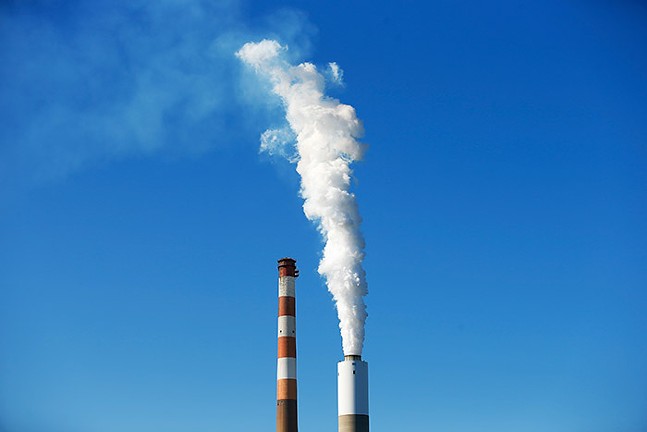Over the past few years, officials, researchers, and advocates have discussed recent concerns about the air quality in Allegheny County and how it affects those with asthma and other respiratory conditions.
To help inform the public about the county’s air quality, the nonprofit organization Breathe Project held the 2021 Asthma Summit virtually on Nov. 5 to address air pollution and asthma in the Pittsburgh area.
The Breathe Project intended for the Asthma Summit to update participants on air pollution issues in the Pittsburgh region and how air pollution affects those with asthma. The event had various guest speakers such as allergist-immunologist Dr. Deborah Gentile.
During the summit, Gentile explained a story of working as a clinician in 2010 for a series of “asthma camps” for families living in medically under-served Pittsburgh neighborhoods. Coaches and school nurses at the camp reported that about half of their students are impacted by outdoor air pollution and carry an inhaler. This motivated Gentile to start looking at the numbers more intensely and she found that some 20% to 30% of camp participants had an asthma diagnosis, but fewer than 50% of the children who needed care had the prescriptions or the know-how to prevent asthma attacks.
Allegheny County has a high percentage of residents affected by asthma. According to a study that tested more than 1,200 elementary school students and found more than 22% of children in some Pittsburgh schools have asthma, which is higher than the 8% national average.
Gentile also said Pittsburgh ranked 53 out of 100 cities considered Asthma Capitals, which are cities the most challenging to live in with asthma.
Pittsburgh receives average ratings in asthma prevalence, but Gentile believes the average is not good enough for the city.
“We are living in a city with two major health systems,” Gentile said. “We have world-class experts in asthma; we have excellent treatment to control everyone's asthma ... I really think living in Pittsburgh, with our access to the health care systems that we have as well as medication is available, the average isn’t good enough.”
While Pittsburgh ranks 53 in the asthma capital report, the 2021 State of the Air report from the American Lung Association gives the city an “F” rating due to being ranked 9 out of 199 cities for the worst city with a long-term fine particulate matter, and it is ranked the 16th worst city to have a short-term fine particulate matter.
Gentile said the Allegheny County Health Department did a study a few years ago on the population to find people of color and low-income communities in the county have a higher rate of asthma prevalence.
She said asthma attacks doubled in the Mon Valley due to the Clairton Coke Works fire during the summit. On Dec. 24, 2018, the 120-year-old facility caught fire and knocked out the pollution controls at the U.S. Steel facility, sulfur dioxide emissions increasing and resulting in the surrounding Mon Valley’s air quality plummeting to unsafe levels.
The coke works owners, U.S. Steel, came to a settlement agreement with the Allegheny County Health Department in 2019 and agreed to pay $2.7 million in fines and $200 million worth of improvements to the facility to reduce emissions.
According to a study by Gentile, hospital patients dealing with asthma-related issues doubled since the fire and found 80% of residents who live 10 miles around the coke works who deal with asthma were at greater risk. Other studies have also linked the fire to increased respiratory issues for nearby residents.
U.S. Steel has noted that before the studies were released, the Allegheny County Health Department's chief epidemiologist testified that there was no connections between the fire and increase in emergency room visits, and the company agrees with those findings.
To help improve the overall air pollution in Allegheny, Gentile described policy initiatives designed to help reduce the air pollution in Allegheny County and held those who have asthma. Policies included regulations to decrease pollution, alert systems to warn residents of a potential fire, and organized response teams to assess and treat health outcomes.
“We have a variety of action items that we do need to implement; we really need to continue to push regulations to decrease air pollution,” Gentile said, “We really need to work on an alert system to warn these vulnerable residents.”


